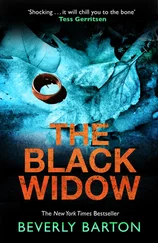Then Glen showed up and I was suddenly “special.”
Nothing much changed at work. But I didn’t socialize with the three other girls because Glen never liked me going out on my own. He said the other girls were single and out for sex and booze. He was probably right, if their Monday morning stories were anything to go by, but I just made excuses and, in the end, they stopped asking me.
I used to enjoy my work because I could drift off into my head and there was no stress. It made me feel safe—the smells of chemicals and straightened hair, the sounds of chatter and running water, hair dryers roaring and the predictability of it all. The appointment book, marked up in blunt pencil, ruled my day.
Everything was decided, even the uniform of black trousers and white tops—apart from Saturday when we all had to wear jeans. “Demeaning on a woman of your experience. You’re a stylist, not a junior, Jeanie,” Glen had said later. Anyway, it meant I didn’t have to decide what to wear—or do—most days. No grief.
They all loved Glen. He’d come and pick me up on a Saturday and lean on the desk to talk to Lesley. He knew so much, my Glen, all about the business side of things, and he could make people laugh even when he was talking about serious stuff.
“He’s so clever, your husband,” Lesley would say. “And so good-looking. You’re a lucky girl, Jean.”
I always understood that she couldn’t believe Glen had chosen me. Sometimes I couldn’t either. He would laugh if I said it and pull me in to him. “You are everything I want,” he’d say. He helped me see things for what they were. He helped me grow up, I suppose.
I didn’t know the first thing about money and running a home when we got married, so Glen gave me housekeeping money each week and a notebook to write down everything I spent. Then we’d sit and he’d balance the figures. I learned so much from him.
• • •
Kate is talking again, but I’ve missed the start. It’s something about an “arrangement” and she’s talking about money.
“Sorry,” I say. “I was miles away for a minute.”
She smiles patiently and leans forward again. “I know how difficult this is, Jean. Having the press on your doorstep, night and day. But honestly, the only way to get rid of them is to do an interview. Then they’ll all lose interest and will leave you alone.”
I nod to show I’m listening, but she gets all excited, thinks I’m agreeing to it. “Hang on,” I say in a bit of a panic. “I’m not saying yes or no. I need to think it through.”
“We’d be happy to make a payment—to compensate you for your time and to help you at this difficult time,” she says quickly. Funny, isn’t it, how they try to dress things up? Compensate! She means they’ll pay me to spill the beans, but she doesn’t want to risk offending me.
I’ve had lots of offers over time, the sort of money you win on the lottery. You should see the letters that’ve been pushed through my letter box by reporters. They’d make you blush, they’re so false. Still, I suppose it’s better than the hate mail that gets sent.
Sometimes people tear out an article from the papers about Glen and write MONSTER in block capitals with lots of underlining. Sometimes they underline it so hard, their pen goes through the page.
Anyway, the reporters do the opposite. But they are just as sickening really.
“Dear Mrs. Taylor”—or just “Jean” sometimes—“I hope you will not mind me writing to you at this difficult time, blah, blah, blah. So much has been written about you, but we would like to give you the chance to tell your side of the story. Blah, blah, blah.”
Glen used to read them out in one of his funny voices, and we’d laugh, and then I’d stick them in a drawer. But that was when he was still alive. There was no one to share this one with.
I look back down at my tea. It’s cold now, and there’s a bit of a skin on the top. It’s that full-fat milk that Glen insists on. Insisted. I can get low-fat milk now. I smile.
Kate, who’s doing her big sell on how sensitive and responsible her newspaper is and God knows what else, sees the smile as another positive signal. She’s offering to take me to a hotel for a couple of nights. “To get away from the rest of the reporters and all that pressure,” she says. “To give you a break, Jean.”
I need a break, I think.
As if on cue, there’s a ring on the front doorbell. Kate peeps through the sheer curtains and hisses: “Bloody hell, Jean, there’s a bloke from the local TV station outside. Keep quiet and he’ll go away.”
I do as I’m told. As usual. You see, she’s taking over where Glen left off. In charge. Protecting me from the press outside. Except, of course, she’s the press, too. Oh God, I’m in here with the enemy.
I turn to say something, but the bell goes again and the letter box flap pings up. “Mrs. Taylor?” the voice shouts into the empty hall.
“Mrs. Taylor? It’s Jim Wilson from Capital TV. I only want a minute of your time. Just a quick word. Are you there?”
Kate and I sit looking at each other. She’s very tense. It’s strange to see someone else going through what I go through two or three times a day. I want to tell her that I’ve learned to just stay quiet. I even hold my breath sometimes so they won’t know there’s a living soul in the house. But Kate can’t sit still. Then she gets her mobile out.
“Are you going to phone a friend?” I ask, trying to break the atmosphere, but of course the telly bloke hears me.
“Mrs. Taylor, I know you’re there. Please come to the door. I promise I’ll only take a moment. I just need to speak to you. We want to give you a platform . . .”
Kate suddenly shouts, “Fuck off!” and I stare at her. Glen would never have allowed a woman to say that word in his house. She looks at me and mouths, Sorry , and then puts her finger to her lips. And the telly man does fuck off.
“Well, that obviously works,” I say.
“Sorry, but it’s the only language they understand,” she says, and laughs. It is a nice laugh, sounds genuine, and I haven’t heard much laughter lately.
“Now, then, let’s sort out this hotel before another reporter comes.”
I just nod. The last time I went to a hotel was when Glen and I went to Whitstable for a weekend, a few years ago now. Must’ve been 2004, for our fifteenth anniversary.
“A milestone, Jeanie,” he’d said. “It’s longer than most armed robbers get.” He liked a joke.
Anyway, Whitstable was only an hour from home, but we stayed in a lovely place on the seafront and ate posh fish and chips and went walking along the stony beach. I picked up flat stones for Glen, and he skimmed them through the waves and we counted the skips together. There was the clanging of sails on the masts of the little boats and the wind whipping my hair into a mess, but I think I was truly happy. Glen didn’t say much. He just wanted to walk, and I was happy to get some of his attention.
You see, Glen was disappearing from my life really. He was there but not there, if you know what I mean. The computer was more of a wife than I was—in all sorts of ways, as it turned out. He had a camera thing so people could see him and he could see them when they were talking. The lighting on those things makes everyone look like they are dead. Like zombies. I just left him to it. To his nonsense.
“What do you do on there all evening?” I’d say, and he’d shrug and say, “Just talk to friends. Nothing much.” But he could spend hours doing whatever it was. Hours.
Sometimes I’d wake up in the night and he wouldn’t be there, beside me in bed. I could hear the murmur of his voice from the spare room, but I knew better than to disturb him. He didn’t welcome my company when he was on the computer. When I used to take him a cup of coffee, I had to knock before going in. He said I made him jump if I suddenly came into the room. So I’d knock, and he’d turn off the screen and take the cup off me.
Читать дальше












